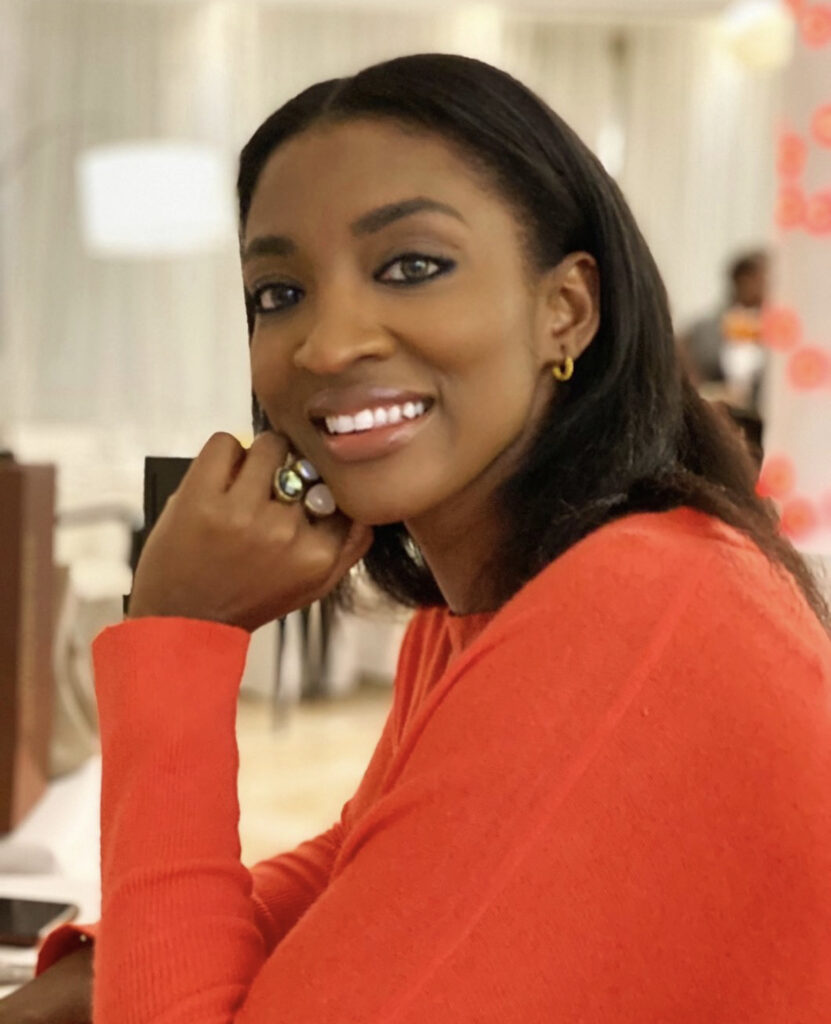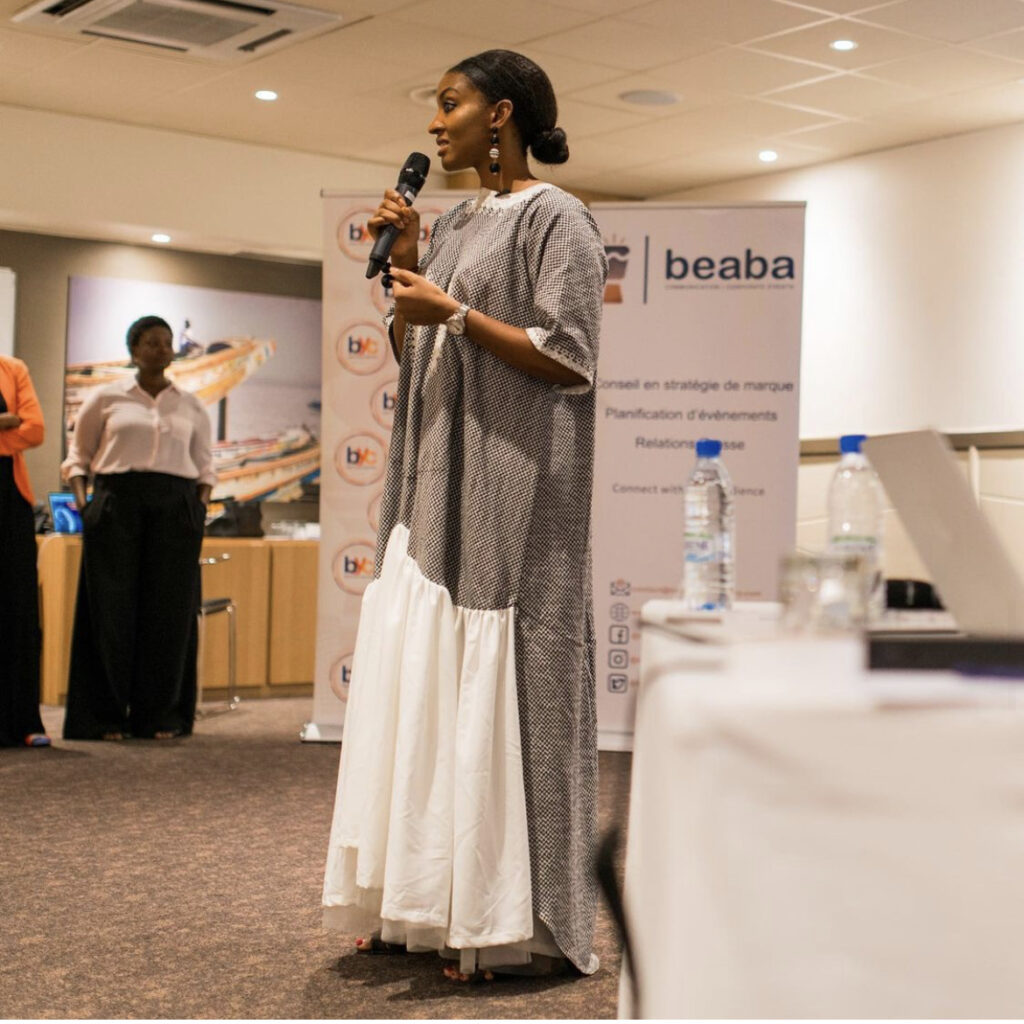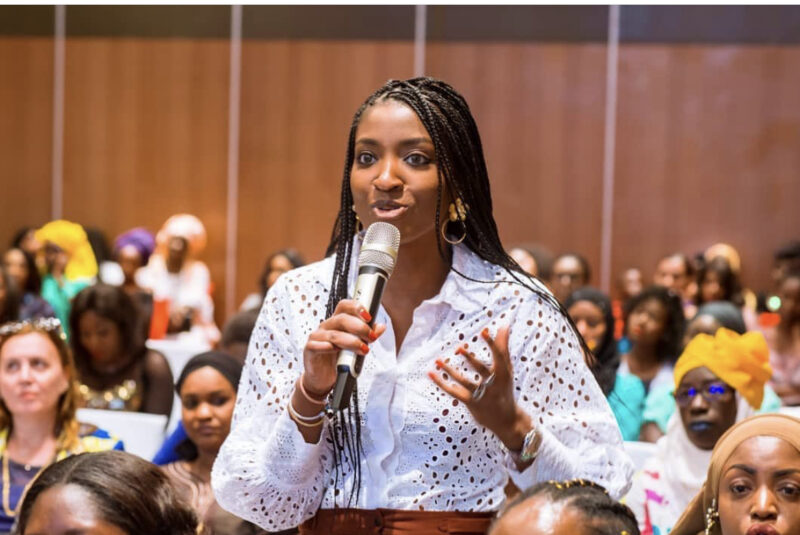Systemic gender inequality affects value chains; women-led businesses are often excluded from the supply and purchasing system by larger firms or government organizations. But the right support programs can help women entrepreneurs access new markets. Béa Blondin Diop, the founder of a local communication agency in Senegal, shares her experience accessing private and public markets through corporate buyers, public procurement, and digital platforms.
In Plateau, the historic downtown of Dakar, street vendors provide all kinds of goods, and in the traditional fish market, thousands of women come out to sort and cut the catch. Béa Blondin Diop runs her company partially from home amidst this hustle and bustle.
Blondin Diop is the founder and CEO of “BeaBA”, a communication agency she founded in 2017. The entrepreneur, who has a background in communication and journalism, helps foreign companies enter the African market by developing communication and marketing strategies and managing in-country events.
“I have never thought of becoming an entrepreneur,” Blondin Diop explains. “My idea of a career was having a fixed job, a good salary, and being promoted within a company. However, when I discovered the world of entrepreneurship, I realized that this could open even bigger doors. And I believe that for Senegalese women, entrepreneurship is the path to more independence.”

Béa Blondin Diop, founder and CEO of “BeaBA”, a communication agency based in Senegal /Photo Credit: Blondin Diop’s Instagram
At the beginning of her entrepreneurial journey, Blondin Diop managed to organize an event for Facebook. The opportunity gave her credibility in the industry and access to other private companies that accelerated her growth. Today, BeaBA serves around twenty clients globally. Most of them come from the private sector. Lately, the company has started to tap into the public market.
Blondin Diop is one of 291 participants who joined the We-Fi funded training focusing on catalyzing access to public procurement contracts for women entrepreneurs. This three-day advisory program was launched in 2020 by the World Bank in collaboration with UN Women to support women-led firms bid for public contracts.
The government is the largest purchaser of products and services in most countries. Public procurement comprises 30 to 40 percent of GDP in developing countries, of which women-led businesses supply only an estimated one percent. Many women entrepreneurs are not aware of the possibilities of public markets or can’t access public procurement opportunities. On their part, government officials are not aware of the capabilities of female bidders and the obstacles they face. Therefore, We-Fi World Bank project in Senegal uses a holistic approach by training women entrepreneurs, providing gender sensitization training to government officials, and working on regulatory reforms.
Blondin Diop believed that the public market was inaccessible because the tender offers were too big for her business. Also, it appeared that bidding opportunities were only open to the same few enterprises.
“Through the World Bank and UN Women program, I realized that there are different sizes of public markets also for smaller offers, and I learned about the legal tender requirements and qualifications to enter public markets,” she says. For Blondin Diop, the highlight of her participation was receiving a public offer from Senelec, the national electricity company of Senegal.

Blondin Diop founded“BeaBA” in 2017/Photo Credit: Blondin Diop’s Instagram
For companies like BeaBA, accessing new private or public markets is critical to surviving the business disruption brought about by the COVID crisis. For example, after losing most foreign clients who patronize her company to organize events and other marketing activities in Senegal due to the pandemic, Blondin Diop had to innovate and experiment with online platforms and alternative digital revenue models. Although the pandemic led to a 60 percent drop in revenue, adapting to the digital space allowed her to continue operating and pay salaries to her employees.
Support programs are vital for linking women-led firms to corporate or public value chains, facilitating access to digital platforms, maintaining business continuity, and securing a foundation to build back better.
About the authors
Felicia Siegrist is a consultant with the We-Fi Secretariat. Recent experiences as a Mercator Fellow on International Affairs include work in Kenya, Uganda, and Senegal where she focused on exploring different models and approaches that strengthen women’s participation in entrepreneurship ecosystems.
Sophia Muradyan is a Senior Private Sector Specialist at WBG’s Finance, Competitiveness, and Innovation Global Practice. She is a Task Team Leader for We-Fi project in Senegal “Connecting national procurement needs with scalable, women-owned SMEs”.

